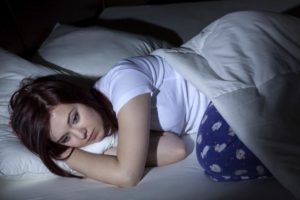Researchers from King’s College London in the United Kingdom have found that young adults who reported feeling lonely were mo re likely to experience poor sleep quality, daytime tiredness, and poor concentration than their non-lonely counterparts.
re likely to experience poor sleep quality, daytime tiredness, and poor concentration than their non-lonely counterparts.
The findings were recently published in the journal Psychological Medicine.
Loneliness is common in the United States. According to a 2016 Harris Poll, of more than 2,000 people surveyed in the U.S., 72 percent reported feeling lonely at times, with almost a third reporting that they experienced loneliness at least once every week.
Although loneliness is often perceived as a problem that primarily affects older adults, recent research has suggested that this is not the case. A survey conducted by the Mental Health Foundation in 2010, for example, found that loneliness is more common among adults aged 18 to 34 than those aged 55 or older.
However, according to the researchers of the new study, less is known about how loneliness affects the health of young adults – in particular, how it impacts sleep quality.
“In the present study, we tested associations between loneliness and sleep quality in a nationally representative sample of young adults,” say Prof. Louise Arseneault, of the Institute of Psychiatry, Psychology & Neuroscience at King’s, and colleagues.
How loneliness affects the sleep quality of young adults
The researchers analyzed the data of 2,232 young adults aged 18 to 19 years, who were part of the Environmental Risk Longitudinal Twin Study.
The researchers asked the participants four questions to measure their feelings of loneliness, including, “How often do you feel that you lack companionship?” and “How often do you feel alone?”
Additionally, the researchers gathered information on the participants’ sleep quality over the past month, including sleep duration, sleep disturbances, and how long it takes them to fall asleep.
Around 25 to 30 percent of the study participants reported that they sometimes felt lonely, while around 5 percent said that they often felt lonely.
The analysis revealed that the lonely participants were 10 percent more likely to have poor sleep quality than subjects who did not report loneliness, and they were 24 percent more likely to experience daytime tiredness and problems with concentration.
These findings remained after accounting for a number of possible confounding factors, including symptoms of anxiety, depression, and other mental health disorders.
Why does loneliness affect sleep quality?
Although the study was not designed to investigate the mechanisms underlying the link between loneliness and poor sleep quality, the researchers have some theories.
For example, they point to previous studies that have identified a link between loneliness and an increase in the “stress hormone” cortisol, which could lead to sleep disruption.
Furthermore, the team found that the link between loneliness and poor sleep quality was strongest among young adults who had a history of exposure to violence.
“This makes sense as sleep is a state in which it is impossible to be vigilant for one’s safety, so feeling isolated from others could make it more difficult to sleep restfully, and even more so for individuals who have been exposed to violence in the past,” notes study co-author Timothy Matthews, also of the Institute of Psychiatry, Psychology & Neuroscience.
“It is therefore important to recognize that loneliness may interact with preexisting vulnerabilities in some people, and that these individuals should receive tailored support.”
Overall, the researchers believe that their findings highlight the importance of addressing feelings of loneliness among young adults before it becomes a major problem.
Medical News Today JO.






